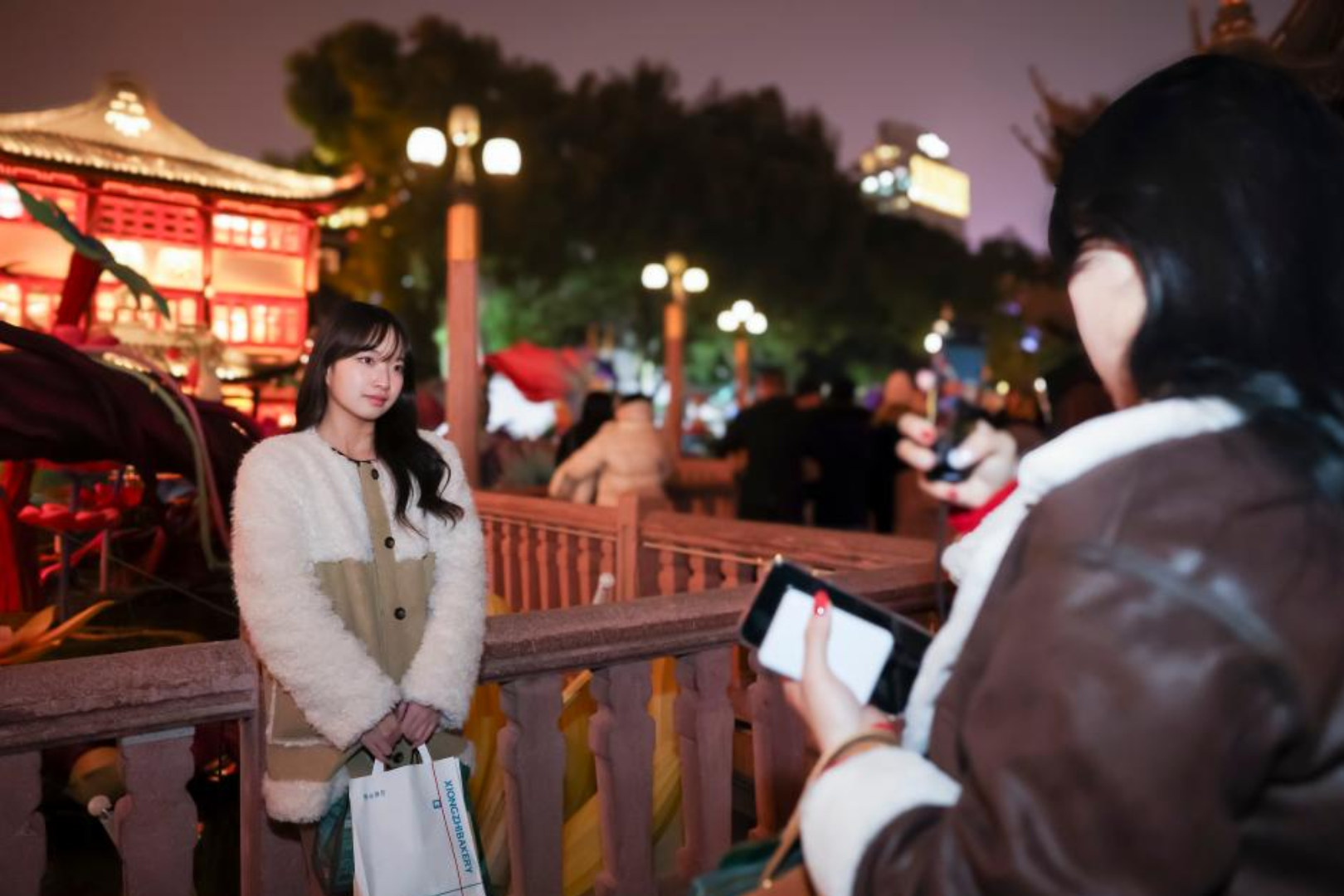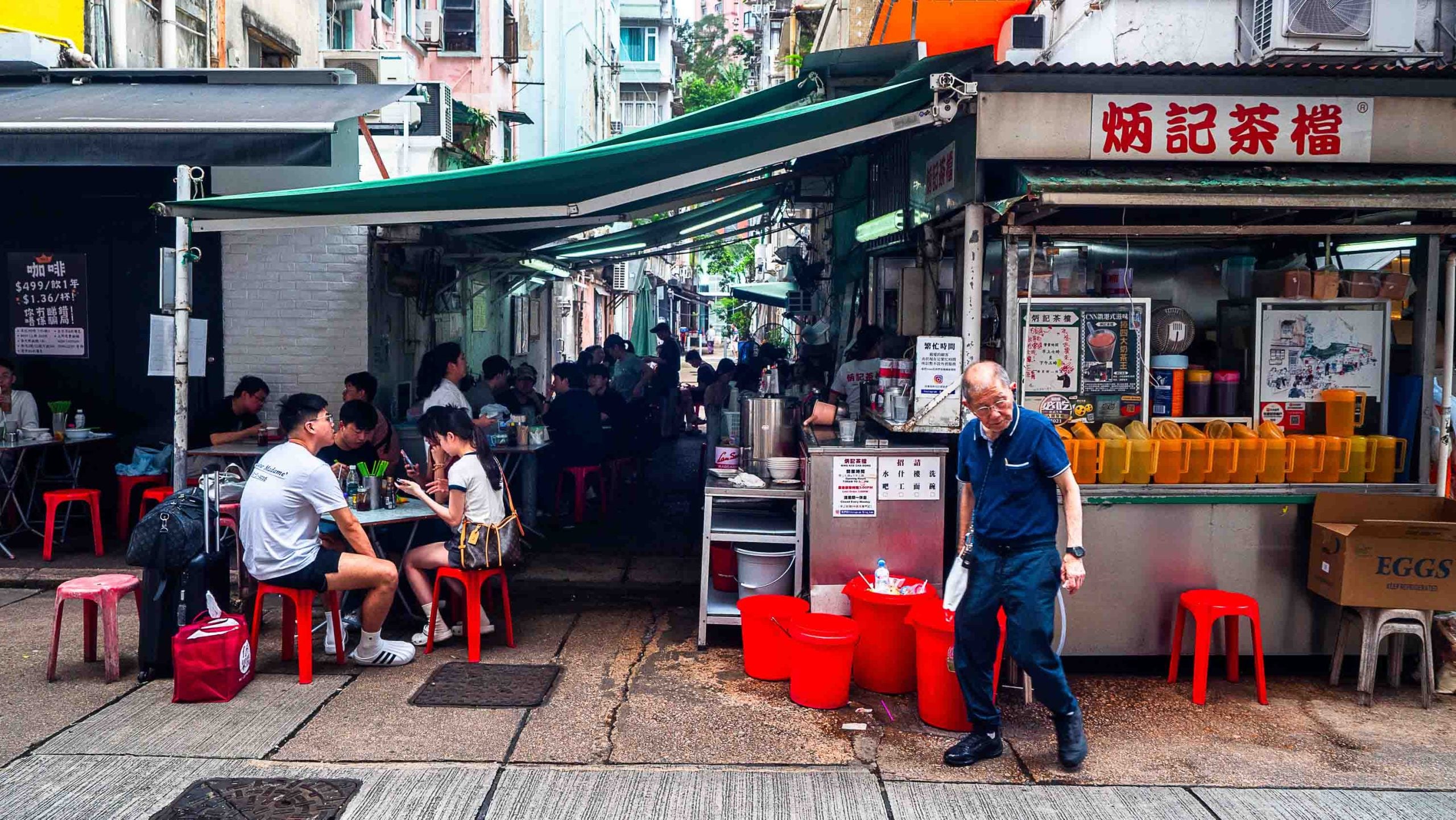Conversations about the intersection between China and East Africa tend to focus on the former’s infrastructure building projects in the latter, which are described as a “big boost,” “one of the best things that has happened” in the region, or a “vastly overpriced” “debt trap”, depending on who you ask. But beneath the surface of high-level geopolitical hand-wringing, a few underground cultural strands have attracted mutual interest between artists from both regions, and are set to solidify with a groundbreaking new residency program kicking off in China this week.

Though he’s never been to China before, the Kampala, Uganda-based producer Slikback has already made virtual connections with some artists to come out of Shanghai’s vibrant underground club music zeitgeist, including Hyph11e and Tzusing. The Nairobi-born producer has only been making music for 2 years, but a live recording from a set he gave at last year’s Unsound Festival in Poland blew the lid off the founder of Shanghai label SVBKVLT, who immediately went about finding a way to plug Slikback’s jagged, indescribably vital cocktail of global sonic influences in with the similarly experimental edginess of the Shanghai scene.
“Around that time I’d been kinda bored of new electronic music, was looking for something fresh, and this was it,” says SVBKVLT. After some email back-and-forth that connected the dots between Slikback and Nyege Nyege, a Ugandan label/collective/festival that sent Kampala producer Kampire on a brief China tour last year, plans were made to bring Slikback to China as a spearhead project that will lead to a handful of Chinese producers heading to Uganda later in the year to record and perform.
“Slikback’s productions are really varied, incorporating a lot of different styles, as well as his own unique sound, so I think there are a lot of artists [in China] he could collaborate with,” remarks Gaz from SVBKVLT, who is holding down the China side of this fledgling cultural exchange conduit. “In Shanghai he will get some time with Hyph11e and Osheyack, in Nanjing we will stay an extra night for him to meet up with Dirty K, and in Beijing I hope we get some time with Howie Lee.”
On the other end of the parabola, a few key members of Uganda’s vibrant underground music scene are preparing to host Chinese artists later this year. One trip will be a mirror image of Slikback’s China residency, inviting a Chinese artist to spend quality time in the studio of the 10-month-old, Nyege Nyege-affiliated label Hakuna Kulala. And in Fall, SVBKVLT will facilitate the appearance of a few artists from China at the annual Nyege Nyege Festival, and prepare a few more China tours for artists from the Ugandan side of the equation. The nebulous but strongly felt short-term endgame for these initial forays is to create a revolving door of genre-breaking new musical ideas between two geographically distant, yet philosophically resonant pockets of creativity.
 Yin: Symbiz Brings Cantonese Bass Music from Germany to Uganda in “Faai Di” Music VideoArticle Aug 11, 2017
Yin: Symbiz Brings Cantonese Bass Music from Germany to Uganda in “Faai Di” Music VideoArticle Aug 11, 2017
“The topic could be really interesting, as Chinese investment is huge on the African continent,” says a member of Berlin-based duo Symbiz, who plugged in with a similar network in Uganda in 2017. “It was very visible to me on every occasion I made it to Africa. Somehow I have heard people mention multiple times how weirdly separated Chinese workers are from local people, which is a bit of a sad situation. But whenever there are people on the move, so is culture, which means there must be musical connections.”
Ahead of Slikback’s residency kickoff — he makes his China debut at Loopy, ground zero for Hangzhou’s experimental club scene, on Friday, April 19 — I spoke with Nyege Nyege co-founder Derek Debru about the potential for China/Africa cultural exchange along the lines of underground club culture, a form of expression that faces similar challenges and produces similarly perception-shattering talents in both places.
RADII: Through Nyege Nyege — your collective, label, festival, and studio — you have given a platform to artists from Uganda, Somalia, Kenya, Democratic Republic of the Congo, Tanzania and beyond. Why is Kampala uniquely suited to host such a blend of people & sounds?
Derek Debru, Nyege Nyege: Uganda has always been renowned for its hospitality. Africans easily get a visa on arrival, the country is English-speaking, and, most importantly, Kampala is home to so many communities, making it a very cosmopolitan and pan-African city, especially the neighborhood where we live. Uganda also has a very welcoming policy towards refugees, hosting Africa’s biggest refugee population. Maybe there’s also a link there, making Uganda a perfect crossroad. Our neighbors include Kenya, Rwanda, Democratic Republic of Congo and South Sudan.
You’ve created relationships with festivals and labels overseas, such as Unsound and SHAPE platform. How have these exchanges helped promote your music in a way that simply running a label or a festival cannot?
Unsound, Shape, CTM, Nusasonic, We Are Europe, Africa Bass Culture, to name just a few, are important partners to allow our own community to interact with new networks and audiences, and sometimes also gain a certain type of validation that helps our artists and our sound gain recognition and opportunities.
What is your interest in China? What can you say about your plans to build a long-term partnership with Chinese labels/artists? Why was Slikback selected to go to China for a two-week immersion to kick this off?
Being curious people, we have a natural interest in China. Not only for the little we know, including some really forward labels we’ve come to interact with like Genome6.66Mbp and SVBKVLT, and experiencing the likes of Kilo Vee or Tzusing just makes it unavoidable not to think about China. Our first tour was with Kampire, where she was invited to play at Dada in Shanghai and Beijing, and that led us to get a bit more exposure there. It was our friend and notorious forward promoter Gaz [SVBKVLT] who got in touch with us about inviting Slikback, before anybody even knew who Slikback was.
Another artist, Hibotep, did a residency with Holly Herndon which was also attended by Min, a South Korean producer based in China, so lots of organic connections. Slikback has always had a fascination with Asia in general, and he was even supposed to study architecture in China before those plans fell through. Over the last year he’s also really connected with a lot of Chinese producers and so it will be easy for him to gel right in.
Last June you launched a new label, Hakuna Kulala, focusing on a small subset of artists in the Nyege Nyege orbit, including Slikback. How is this label different from Nyege Nyege tapes in terms of mission, sound, or geographical focus?
Hakuna Kulala was started when a few of the young producers we had been working with for some years started to blossom and make more and more interesting music. They needed a platform that was also more free, hence digital only, and so Slikback, Rey Sapienz and Don Zilla launched Hakuna Kulala. It features less endogenous scenes as on Nyege Nyege Tapes — like singeli, acholitronix, electrokadodi, etc — and more music from the NOW, what young producers are making in this moment and can bang right into any club.
China and Africa are two very big places that tend to be stereotyped and poorly understood in the West. That said, and without simplifying things, are there any patterns or trends you notice that producers/DJs from Africa & China have in common? What is the common basis for exchange between these two places and how do you hope to build on that with this tour and future collaborations with Chinese labels or artists?
I think there’s something common to the whole of the “Non-Western World,” which is that they are tired to be in a world where Western norms are imposed, along with many other things. I think many underground artists outside the West today are trying to detach themselves from that monolith and build the contours of new sonic explorations, new musical languages and experiences that do not fall into a simple category. Music, identities, politics, morals, culture, all those things are being reconfigured and challenged in music today, and I think that sort of urgency among the underground to carve a sound locally but also to be part of the rest of the world, is what seems to drive producers from both places, at least in terms of electronic music.
I think many underground artists outside the West today are trying to detach themselves from that monolith and build the contours of new sonic explorations
After Slikback comes back [to Uganda], he will invite Chinese artists to collaborate in the residency he’s part of at the Hakuna Kulala Studios, and then we will invite several Chinese DJs and producers to come to our festival in September, Nyege Nyege, after hopefully friendships blossom, great music gets made, new audiences are involved, and everyone wants to continue in that direction. Friendship is definitely important.
China has invested a lot of money in building projects in Africa over the last several years as part of its One Belt One Road initiative. What is the general feeling about China in Uganda or Kenya? Does this create unique barriers or opportunities for underground cultural exchange to occur between the two places?
Chinese people tend to live among themselves in Uganda or Kenya, so there’s actually very little interaction, even less in a club setting. So this is a chance to fill that gap and actually create situations in Uganda where Chinese and Ugandans party together to Chinese and Ugandan DJs. I think underground is always underground no matter where, and there’s a tendency for people that come from the fringes to connect naturally.
This is a chance to fill that gap and actually create situations in Uganda where Chinese and Ugandans party together to Chinese and Ugandan DJs
Anything else you want to add about your future plans for sending African artists to China, or hosting Chinese artists in Africa?
Nothing other than we’re really excited to see China and East Africa collaborate in this way, and this is just the beginning. Hopefully soon we’ll be able to benefit from cultural exchange programs and show our respective governments that these type of exchanges are very fruitful for cultural relations.
—
If you’re in China, catch Slikback on 4/19 at Loopy, Hangzhou; 4/20 at ALL, Shanghai; 4/25 at OIL, Shenzhen; 4/26 at Monohouse, Nanjing; and 4/29 at Dada, Beijing.
Cover photo: Slikback (credit: Alim Karmali)
You might also like:
 Listen: Shanghai’s Hyph11E Explores China’s “Hard Dance” Scene in New Boiler Room MixThe Genome- and SVBKVLT-affiliated producer takes over Boiler Room’s new Hard Dance seriesArticle Mar 24, 2019
Listen: Shanghai’s Hyph11E Explores China’s “Hard Dance” Scene in New Boiler Room MixThe Genome- and SVBKVLT-affiliated producer takes over Boiler Room’s new Hard Dance seriesArticle Mar 24, 2019
 Young African and Chinese Thinkers Tell Their Stories at First-Ever “Africa Week” in BeijingArticle May 24, 2018
Young African and Chinese Thinkers Tell Their Stories at First-Ever “Africa Week” in BeijingArticle May 24, 2018
 “One Million Girl Coders by 2030”: An Interview with Mariéme JammeArticle Sep 01, 2017
“One Million Girl Coders by 2030”: An Interview with Mariéme JammeArticle Sep 01, 2017


















